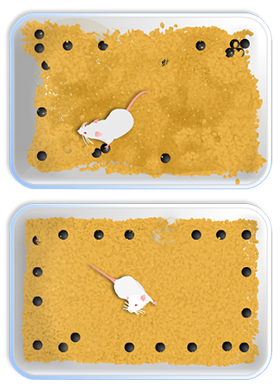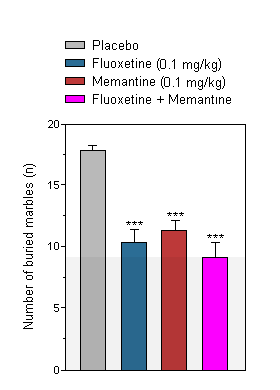Newsletter # 113

Animal models
-
Frenetic repetitive and stereotypic Marble burying behaviors of mice
Left panel :
Illustrative comparison of outcome patterns for frenetic repetitive and stereotypic Marble burying behaviors of placebo (up) and Fluoxetine + Memantine combination (down) treated mice.
-
Right panel :
The graph shows the number of marbles buried by mice during a 20-minute-long session. 20 glass marbles (diameter: 1.5 cm) are spaced evenly along the walls of the homecage cage which contains about a 5 cm layer of fine sawdust bedding.
-
Placebo-treated mice frenetically bury more than three-quarter of the marbles whereas those treated Fluoxetine or Memantine bury only about half of the marbles. This suggests an effective action of these drugs on the control of repetitive obsessive behaviors of mice.
Get in touch


 PREVIOUS
PREVIOUS

